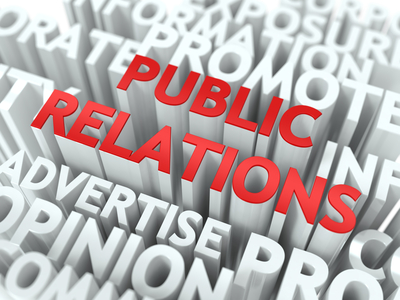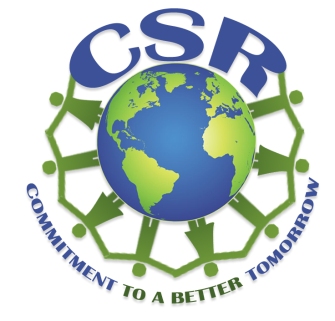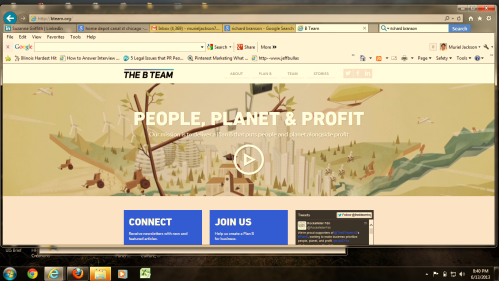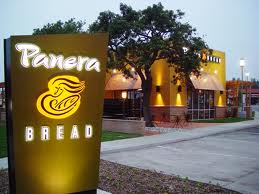So, we’re back briefly on one of our favorite topics–public relations vs. lobbying. This time, 
U.S. Senator Elizabeth Warren weighs in on astroturfing, or lobbying under the guise of public relations, via the New York Times video. “This Is Thinly Disguised Lobbying,” she says. Check it out here: http://nyti.ms/2aGaAYo
Posts Tagged 'cause-related marketing'
PR Or Lobbying? Astroturfing by Another Name
Published August 8, 2016 Uncategorized Leave a CommentTags: astroturfing, cause-related marketing, communications advocacy, ethics, lobbying, PR, public relations
Starbucks, Pushing the Bounds of CSR: Is That a Good Thing?
Published April 13, 2015 Uncategorized Leave a CommentTags: cause marketing, cause-related marketing, corporate social responsibility, corporate sustainability, CSR, Diversity, For Love of Country, Howard Schultz, Race Together, RaceTogether, Starbuck's, veterans, veterans affairs
We knew when we first read about it, that we’d write a post about it. Howard Schultz and Starbucks had done it again—proven to be an agenda-setter on public engagement and corporate social responsibility (CSR). No, we’re not talking about the #RaceTogether initiative—but we’re including our thoughts on that in this post too! The impetus really began with Starbucks’s salute to military veterans in its For Love of Country recognition.
For Love of Country may not be as familiar as Race Together, but it predates and overlaps with the much ballyhooed #RaceTogether. For those who may have missed it, Starbucks joined forces with journalist Rajiv Chandrasekaran to produce a book and related advertising and media push to herald not only the courageous service of military veterans, but to also raise some prickly social issues–namely, who fights our wars in America’s all-volunteer army (and who doesn’t), and how those who do are acknowledged for their service. (Not nearly meaningfully and substantively enough by the rest of us.)
We were impressed that Schultz, as a corporate leader, not only stepped out front on this sensitive topic, but then went one step further—in the minds of many, one step too far—by prodding us to talk about the contentious issue of “race.”
Whether you thought well or ill or the #RaceTogether effort, or even question a company raising pangs of consciousness about the social justice of an all-volunteer army, or any other societal woe, we think there’s a lot to be gained by companies taking leadership on social issues.
There’s a long history of companies doing well by doing good. You’ve read some of our posts on Henry Ford and a whole array of others before and since who’ve put their money and their mouths to lead or join important social and civic conversations. Indeed, it’s well established that a socially active or PR savvy CEO brings added value to a company and even an industry
As further affirmation, just look at what tech moguls were able to help accomplish when they found their collective voice against sex bias and discrimination in #Indiana.
So we think it’s a good thing that CEOs like Howard Schultz embark on campaigns that remind us that companies share our social pains and that, even better, they have the means to affect changes that make things better for us all. We all know that companies often engage their collective voices behind closed doors to secretly lobby for things they believe represent their corporate interests. We think it’s time more CEOs join the public dialogue about the things more enduring and sustaining that impact us all. Wanna’ talk about #RaceTogether? We’re game. And while we’re at it, let’s talk about For Love of Country, too!
.
A New Era in Corporate Social Responsibility?
Published December 31, 2014 Uncategorized Leave a CommentTags: cause marketing, cause-related marketing, corporate giving back, corporate good causes, corporate social responsibility, CSR, CSR initiatives, PR marketing
Okay, so we’ve been MIA to attend to some new projects. But we thought we’d finish out 2014 and go into 2015 strong, with some words of wisdom on one of our favorite topics–CSR (corporate social responsibility).
As with everything else associated with business marketing and communications, there’s a way to do almost anything … then there’s a way to do things that are strategically aligned with our business purpose, goals, and values, etc. So it was interesting to us to run across this Harvard Business Review in-depth assessment of CSR programs, which can provide guidance to all us PR-types on why companies do what they do in CSR (the end goal), and how they might do it better. For your new year’s enjoyment, were passing along the article and advice here.
Most companies have long practiced some form of corporate social and environmental responsibility with the broad goal, simply, of contributing to the well-being of the communities and society they affect and on which they depend. But there is increasing pressure to dress up CSR as a business discipline and demand that every initiative deliver business results. That is asking too much of CSR and distracts from what must be its main goal … Read more.
BTW, Happy New Year!
Reframing Issues for Public Policy in the Digital Age
Published October 2, 2014 Uncategorized Leave a CommentTags: cause-related marketing, communications advocacy, CSR, digital PR, digital public relations, issues management, nonprofit communications, nonprofit PR, nonprofit public relations, public policy, reframing, reframing issue, social marketing, social media communication, social media marketing
We’re back! … from taking time away to do a deep dive into Tech PR. (We’ll be writing more about that in upcoming posts.) But in the meantime we stumbled upon this article on reframing issues in the digital age, which should be required reading for people who work in nonprofits. We work principally with nonprofits, and we love them and the causes they represent. The world’s a better place because they do what they do–but, for many, there’s so much room to do more, and do it better! The PR Doctor can’t reach everyone, so in the best spirit of aiding good causes and intentions everywhere, we’re sharing this post from Nonprofit Quarterly. And if you reside strictly in the commercial world and think nonprofit’s not your “thing,” be advised, there’s lots of good information here about shaping public opinion on just about anything. Enjoy!
“One of a social advocate’s most critical acts is to frame an issue. In framing, a communicator uses language, metaphor, and other means to bring the community into the issue in a particular way. So, for instance, tobacco control advocates reframed tobacco from a “personal vice” narrative, in which the public discourse centered around individual choice and behavior, to a “defective product” narrative, in which the role of corporate malfeasance and the need for protective regulations became clear. Reframing an issue is hard work, as frames are socially shared and persist over time; but it is worth it, because public opinion and policy preferences are frame dependent. The stories nonprofit communicators tell have the power to make the public more or less supportive of positive changes” … yet
“Too often, nonprofits have mistaken self-promotion and “click bait” as meaningful contributions to the public conversation on complex issues. “Clicks,” “views,” and “likes” only mean so much if the story they carry isn’t helping people to understand the causes of and solutions to complex social issues. More and more, organizations tackling tough social justice issues are recognizing that not just participating in but also changing the conversation is essential to achieving and sustaining meaningful impact.” Read more.
Smart Marketing & Corporate Social Responsibility: Beyond A Marriage of Convenience
Published November 13, 2013 Uncategorized 2 CommentsTags: cause marketing, cause-related marketing, corporate good causes, corporate reputation, corporate social responsibility, CSR, good PR, good public relations, reputation management, smart marketing, social responsibility
We’ve said before that we’re big proponents of “smart marketing”: Companies that show they “get it” by marrying their business mission and vision to also serve some public good. By another name, it’s also called corporate social responsibility.
That approach to business, articulated with authority by Henry Ford in the early 20th Century—has been a proven model for “good,” as well as for effective business practices. Today it’s carried forward by many visionary companies.
We like to call it “makes-sense marketing” because, in effect, these companies are paying it forward and stockpiling public goodwill, as well as managing their “bottom line.” Periodically, we like writing about those companies and their campaigns on these pages.
So it brings us great pleasure to share this round-up of “smart marketing” companies, first published by Hubspot, who have made their “giving back” programs an integral part of the company culture. These companies include American Express, Lowe’s, General Electric, and others you may not be aware of.
And, more recently, another natural disaster, the incredible Typhoon Haiyan, motivated another corporate giant—Google–to get creative and show how it could help. Melissa Agnes writes about how Google is combining its business mission and tools with public service to provide critical help to those suffering during an enormous crisis.
Please take a few moments to check out these stories, take a few notes, and perhaps a few lessons from what they’ve done. And, by all means, tell us what you think. We’d like to see smart marketing—makes-sense marketing—become a real movement!
*A final note: As if made to order, shortly after publishing, we ran across this Forbes article on “Purpose” that we think summarizes the ethos quite nicely. The only thing we would add to the writer’s bullet list is be certain to “act” on your purpose!
Starbucks’ Cause Marketing & CSR: Two Views
Published October 15, 2013 Corporate Communications Leave a CommentTags: cause-related marketing, corporate communications, corporate reputation, corporate social responsibility, CSR, customer experience, PR, reputation, smart marketing, social marketing, Starbuck's
 Generally speaking, we like Starbucks corporate style, and we’ve given them a few shoutouts in previous posts for providing a good example in cause-related marketing and corporate social responsibility (CSR). But, like many companies, they haven’t always met our expectations in every area. So, to balance the perspective, we’re reblogging a post that offers potentially another view of Starbucks. This doesn’t mean we’ve changed our view of Starbucks; we still think the company’s miles ahead of most companies in social listening, social marketing, and CSR. But, fair is fair, and we provide this post to keep you informed to make up your own mind. Let us know what you think.
Generally speaking, we like Starbucks corporate style, and we’ve given them a few shoutouts in previous posts for providing a good example in cause-related marketing and corporate social responsibility (CSR). But, like many companies, they haven’t always met our expectations in every area. So, to balance the perspective, we’re reblogging a post that offers potentially another view of Starbucks. This doesn’t mean we’ve changed our view of Starbucks; we still think the company’s miles ahead of most companies in social listening, social marketing, and CSR. But, fair is fair, and we provide this post to keep you informed to make up your own mind. Let us know what you think.
“It is with interest that I saw with the US Government shut down continuing in Washington D.C. that Starbucks have started a campaign to facilitate change in our Nation’s capital. They are offering a free coffee to anyone who buys their fellowman their favourite drink in one of their stores.
My initial thought was this was good and I was pleased they cared enough about this issue to start this promotion. I considered that this shows their social responsibility by getting involved and trying to help… or are they?”
Read more Starbucks: Real Concern or Just Good Marketing? http://linkd.in/17DigzD
And, in case you haven’t encountered it yet, here’s an AdWeek write-up of Starbucks’ latest campaign.
Social Responsibility and Small Business
Published July 25, 2013 Uncategorized 1 CommentTags: cause-related marketing, corporate social responsibility, CSR, smart marketing, social responsibility, social responsibility for small businesses, socially responsible small business
Too often when we talk about social responsibility in business, the default image is of some large corporation or conglomerate, and what they are or aren’t doing in their business to make the world a better place. Rarely do we stop to think or talk about how small businesses—like ours, MediaWorks, Inc.—can be engaged as socially responsible businesses. We recently ran across a great article from Stanford Social Innovation Review that offers a powerful narrative and a template for how even the smallest businesses can engage in socially responsible business practices. It starts like this:
How To Be A Socially Responsible Small Business
1) Your money is a powerful vehicle for change. Every dollar that you spend is an opportunity to make a conscious choice to support values-aligned businesses. Your dollar is your “vote.”
2) Buy local. Coffee, lunch, office supplies, support services, including insurance, banking, repairs, office supplies, office security, etc. These are all services needed by most businesses that can have a measurable impact on a community when purchased, where possible, locally. 
3) That measurable impact is known as the “multiplier effect.” Dollars spent locally tend to circulate longer within a local community and they’ve also been reported to increase levels of collaboration and mutual support among businesses, as well as total dollars spent.
4) Giving back. The book on which the Stanford Review article is based, Small Business, Big Change: A Microentrepreneur’s Guide to Social Responsibility, offers a couple of creative ways that small business can give back to their community.
- Contribute cash or in-kind donations to local causes and organizations that serve community needs.
- Donate a percent of revenues or a percent of the cost of products or services to community organizations you support.
To find out more of the details, we highly recommend reading the article, or perhaps buying the book. But most importantly, realize there’s an important role for small businesses to play in social responsibility.
We’re already engaging in some of these practices (buying local), and look forward to more ways to do our part. Your small business can send out a powerful message about social responsibility in its local practices that can become a catalyst for communitywide, and perhaps global, change.
One last thing, here’s an update on the “big picture” in CSR, “How the Voice of the People is Driving Corporate Social Responsibility,” from Harvard Business Review: http://blogs.hbr.org/cs/2013/07/how_the_voice_of_the_people_is.html?utm_source=Socialflow&utm_medium=Tweet&utm_campaign=Socialflow
Richard Branson and Global B-Team Look to Make Bold Moves in Corporate Social Responsibility
Published June 14, 2013 Uncategorized 1 CommentTags: B Team, cause marketing, cause-related marketing, corporate good causes, corporate social responsibility, CSR, PR marketing, Richard Branson, smart marketing, social impact, social responsibility, The B Team, Virgin Group, Virgin Unite
Do you know about The B-Team?
Virgin enterprises founder Richard Branson has assembled an international braintrust
to make corporate social responsibility a frontburner issue among C-suite execs and in boardrooms.
We gather that this effort is designed to bring the same kind of muscle to perplexing and pervasive social issues as some companies already do individually and foundations frequently do collectively. Yet, Branson’s goal is to harness the somewhat unique collective power of global business to amplify the impact on some of the world’s most intractable social problems.
By its own telling, The B-Team’s “vision of the future is a world in which the purpose of business is to be a driving force for social, environmental and economic benefit.”
Taking up the mantle of a modern-day Henry Ford, The B-Team offers an equally bold mission: “to deliver a ‘Plan B’ that puts people and planet alongside profit. Plan A — where companies have been driven by the profit motive alone — is no longer acceptable.”
Branson, noted for his bold and audacious corporate moves, brings a very different force, and perhaps focus, to the rather low-key world of CSR. The powerhouse group’s manifesto is an unblinking call to action, which includes these statements :
-
“Non-Profits alone cannot solve the tasks at hand, while many governments are unwilling or unable to act.
- “While there are myriad reasons we’ve arrived at this juncture, much of the blame rests with the principles and practices of ‘business as usual’.
- “These are not the outcomes we envisioned as we grew our companies; this is not the dream that inspired us.
- “And the overwhelming conclusion we’ve reached is that businesses have been a major contributor to the problems, and we as business leaders have the responsibility of creating sustainable solutions.”
(Check out their video declaration of these principles: http://bteam.org/leadership/watch-the-b-team-declaration/ )
We hope it makes a difference. We couldn’t agree more that the public and nonprofit sectors alone can’t address the growing host of existing global and social problems—a number of which are caused by bad business practices. This movement bears watching; and we hope this consolidated global business force can bring to fruition some of its most lofty goals:
“Therefore, if we leverage the many positives of business – the spirit of enterprise,
innovation and entrepreneurship that has helped realize improvements in quality
of life and enabled technological and scientific progress – we can create an
unprecedented era of sustainable, inclusive prosperity for all.”
So what do you think? Are you enthusiastic? We’d love to read your comments.
More On Companies Daring To Do Good
Published May 8, 2013 Uncategorized 1 CommentTags: cause-related marketing, CEO blogs, corporate blogs, corporate reputation, corporate social responsibility, digital marketing & PR, digital PR, digital public relations, Panera, smart marketing, social responsibility
Over the span of our posts, we’ve complimented a wide array of companies that seem to be particularly attuned to marrying their business operations with what we call “smart marketing” and corporate social responsibility. Panera has been cited as one such company, on more than one occasion. Today, in his own words, Panera’s founder, Ron Shaich, talks about the principles that guide the company’s business and good deeds … Daring to Do Good
And on more than one occasion, we’ve written about the benefits of C-suite blogging as a way of “keeping it real” and staying in touch with customers and other important audiences. We’re happy to give a platform to others who share that view. Here’s a testimony from Twitter social leader & blogger, Claire Diaz-Ortiz …
“Starting a blog was one of the smartest things I ever did …”

Inspired reading, on both counts, we hope! Let us know what you think.
Why Don’t They Call It “Makes-Sense” Marketing?
Published April 1, 2013 Uncategorized Leave a CommentTags: cause marketing, cause-related marketing, corporate social responsibility, CSR, PR marketing, smart marketing, social responsibility
In past posts we’ve featured the Corporate Social Responsibility campaigns of Panera, Starbucks, Exxon and more, and there are many others out there making similar “smart” marketing moves. One of the common equations of these and other successful cause-related marketing is that the causes they support are so intrinsically tied to their industries and their business models. So, it occurred to us, why don’t we just call these efforts “makes-sense” marketing”?
similar “smart” marketing moves. One of the common equations of these and other successful cause-related marketing is that the causes they support are so intrinsically tied to their industries and their business models. So, it occurred to us, why don’t we just call these efforts “makes-sense” marketing”?
Here’s another noteworthy CSR campaign—this one by OfficeMax. The retail office supply company is providing—guess what—to schools? School supplies! It’s a win for the retailer and no doubt for the appreciative teachers, kids and administrators at receiving schools. Makes sense, right?
Clearly, more such smart marketing moves are needed, and we like to spotlight as many as we can. So if you’re aware of other smart marketing moves by companies, large and small, please let us know. Just makes sense, doesn’t it?









